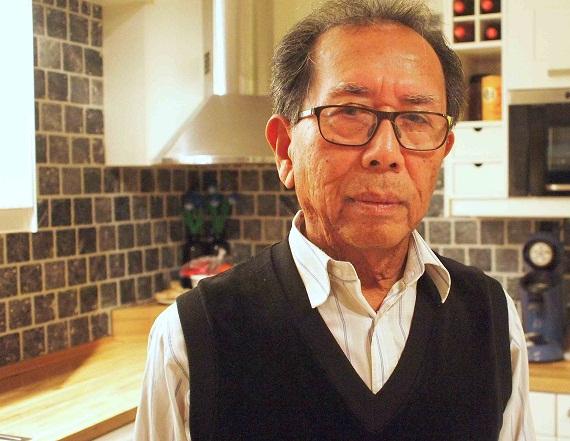HEADLINE
The Crime of Remembering 1965 in Indonesia
"A crime that reverberates today as both the families of victims and the perpetrators, still confront each other – sometimes daily. "

1965 will always be remembered as the year of genocide in Indonesia. A crime that reverberates today as both the families of victims and the perpetrators, still confront each other – sometimes daily.
Ric Wasserman investigates tortures past and present in this report, after meeting 77-year-old Sumatran born Tom Iljas, who was deported from Indonesia this October for trying to identify the mass grave where his father is buried…
Against the background of the powerful documentaries “The Act of Killing” and its sequel “The Look of Silence”, we also hear an exclusive interview with Indonesia’s ambassador to Sweden, Dewa Sastrawan, on how the government is dealing with its painful past.
Joshua Oppenheimer’s chilling film “The Act of Killing” recounts the 1965 mass slaughter of Indonesia’s communists – from the point of view of the murderers.
In spite of their heinous crimes that saw up to a million people killed, impunity reigns.
The admitted murderers of the past are today, to many, heroes – But not to Tom Iljas…
Over coffee in his flat in a Stockholm suburb Tom tells me his story.
“I was given a scholarship to Beijing by the Sukarno government to study the mechanization of agriculture,” he says, “I was finished in September 1965 when the coup took place. My father was murdered by the military in November 1965. I couldn’t return home since then.”
Tom longed to visit his father’s grave, but didn’t know where to look. Then in October last year Tom, now a Swedish citizen, met a student from his village who told him that there were two witnesses who could point out the spot for the mass grave where his father and 40 others were dumped.
If Tom wanted to locate his father’s grave he’d have to go soon – while the witnesses were still alive. Tom went home for the first time in decades.
“The two witnesses were leading us to where the grave was, but before getting there a group of men who blocked our way,” he says, “I said I just wanted to say a prayer over the grave but they refused. We were forced to leave. Plain clothed police then stopped our car, took the keys, and held us in custody for 24 hours. They accused us of making a film on the genocide.”
It didn’t end there. When the police saw Tom’s Swedish passport they kept him for two more days and nights of questioning. And then they deported him and blacklisted him from returning to Indonesia.
The local residents who wanted to help Tom find his father’s grave may now be at risk.
![]()
It’s been 17 years since the “reformasi” process in Indonesia – but the ghosts of the past still haunt the country.
Tom Iljas’ experience could have been a scene in Joshua Oppenheimer’s new documentary film “The Look of Silence”
In the film the protagonist, an optometrist whose brother was tortured and murdered by the local militia in 1965 listens as two villagers talk: “A million people were killed, ” says one, “That’s politics,” says the other, with a shrug.
So how far has Indonesia come in building democracy, accountability and human rights since the era of President Suharto?
If anyone in Sweden could shed light on where Indonesia is regarding the reform process, it would be the Indonesia ambassador to Sweden, Dewa Sastrawan.
“When we started our reformation the biggest commitment as a nation was how to get the military to the barracks,” he says, “Before reformasi there was a very centralized and strong control by military related gov’t. Now it’s gone.”
Ambassador Sastrawan saw both of Oppenheimer’s films and was moved, he told me.
He was the first Indonesian diplomat, he says, to publically discuss the films with the filmmaker.
“When I watched this movie and of course talked with Joshua – this is, to me, personally, part of transparency that we have now in Indonesia,” he says.
But Oppenheimer’s films show that the past isn’t as far behind as ambassador Sastrawan would like to think.
The films have not been shown on Indonesian TV or in theatres, in spite of “The Look of Silence” being nominated for an Oscar award this year.
“We cannot expect people will open their minds to talk about past or future,” he says, “This is part of the democratic process in Indonesia.”
Tom Iljas looks at a picture taken of him at his mother’s grave in his village, and recalls how close he had come to paying his last respects to his father.
The new Indonesian transparency Ambassasor Sastrawan talks about hasn’t yet arrived for him.
Tom Iljas agrees that reformasi has had positive effects – books have been published on the 1965 genocide. One can organize politically. But the “c” word is still dangerous, he says.
People have the right to organize, he says, as long as it doesn’t “smell communist”.
Ambassador Sastrawan met Tom shortly after Tom returned to Sweden:
“We’ve been friends since I came here in 2012. I asked Tom, “What happened?” Tom said it’s not a permanent ban, just temporary. We will come back. If you ask me what crime he did? I don’t know,” he says.
- Ric Wasserman
- The Act of Killing
- The Look of Silence
- eksil tom iljas
- eng
Komentar (0)
KBR percaya pembaca situs ini adalah orang-orang yang cerdas dan terpelajar. Karena itu mari kita gunakan kata-kata yang santun di dalam kolom komentar ini. Kalimat yang sopan, menjauhi prasangka SARA (suku, agama, ras dan antargolongan), pasti akan lebih didengar. Yuk, kita praktikkan!